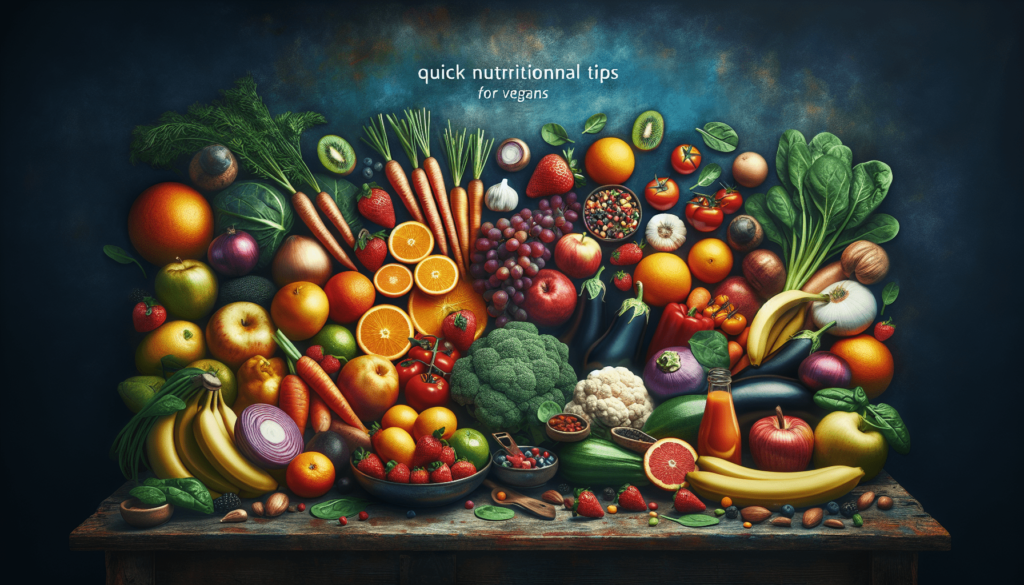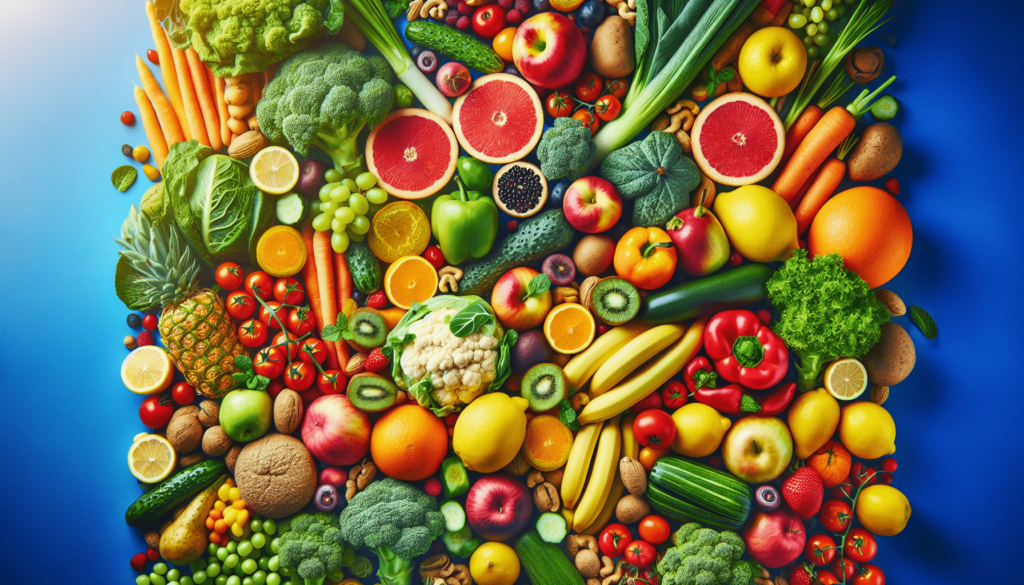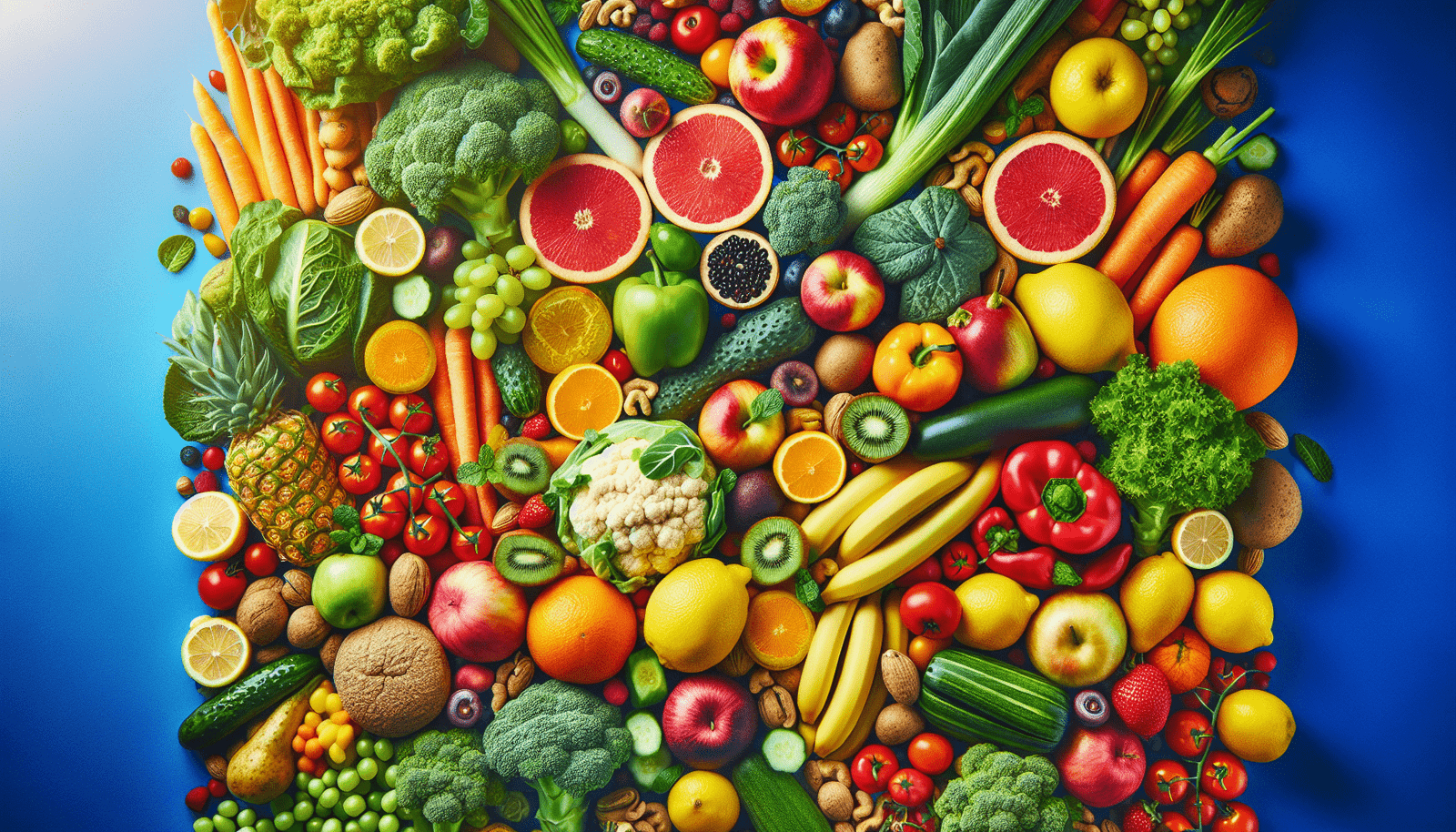Quick Nutritional Tips For Vegans
Are you considering transitioning to a vegan diet and wondering how to ensure you get all the essential nutrients your body needs? Look no further! In this article, you will find quick nutritional tips for vegans to help you stay healthy and thrive on a plant-based diet.

Essential Nutrients for Vegans
As a vegan, it’s essential to pay attention to getting all the necessary nutrients your body needs. Some nutrients may be harder to obtain from plants alone, so it’s crucial to plan your meals carefully.
Protein
Protein is a crucial macronutrient that plays a vital role in building and repairing tissues in your body. While animal products are traditional sources of protein, there are plenty of plant-based options for vegans to choose from, such as beans, lentils, tofu, tempeh, quinoa, and nuts. Make sure to include a variety of protein sources in your diet to ensure you get all the essential amino acids.
Iron
Iron is essential for the formation of red blood cells and carrying oxygen throughout your body. Plant-based sources of iron include legumes, dark leafy greens, whole grains, nuts, and seeds. To enhance iron absorption, pair these foods with vitamin C-rich foods like citrus fruits, bell peppers, and strawberries.
Calcium
Calcium is crucial for maintaining healthy bones and teeth. While dairy products are known for being rich in calcium, vegans can obtain this nutrient from plant-based sources such as fortified plant milks, tofu, tempeh, leafy greens, almonds, and sesame seeds.
Vitamin B12
Vitamin B12 is a nutrient that is primarily found in animal products, so vegans are at risk of deficiency. It’s essential to include fortified foods like plant milks, breakfast cereals, and nutritional yeast in your diet or consider taking a B12 supplement to ensure you meet your daily requirements.
Meal Planning Tips for Vegans
Meal planning is key to ensuring you get all the necessary nutrients on a vegan diet. Here are some quick tips to help you plan balanced and nutritious meals:
Include a Variety of Foods
To ensure you get all the essential nutrients your body needs, make sure to include a wide variety of fruits, vegetables, whole grains, legumes, nuts, and seeds in your meals. Eating a rainbow of colors will not only make your meals more visually appealing but also provide a range of nutrients.
Focus on Whole Foods
While processed vegan foods can be convenient, they may not always be the healthiest option. Try to focus on whole foods like fruits, vegetables, whole grains, legumes, nuts, and seeds to ensure you get the most nutrients from your meals.
Don’t Forget Healthy Fats
Including sources of healthy fats like avocados, nuts, seeds, and olive oil in your diet is essential for overall health. These fats provide essential fatty acids that your body needs for brain function, hormone production, and cell membrane structure.
Be Mindful of Portion Sizes
While plant-based foods are generally lower in calories than animal products, it’s essential to be mindful of portion sizes to ensure you get all the necessary nutrients. Make sure to include a balance of carbohydrates, protein, and fats in each meal to keep you feeling satisfied and energized.
Vegan Sources of Essential Nutrients
To help you plan your meals, here is a list of vegan sources of essential nutrients:
| Nutrient | Vegan Sources |
|---|---|
| Protein | Beans, lentils, tofu, tempeh, quinoa, nuts |
| Iron | Legumes, dark leafy greens, whole grains, nuts, seeds |
| Calcium | Fortified plant milks, tofu, tempeh, leafy greens, almonds, sesame seeds |
| Vitamin B12 | Fortified plant milks, breakfast cereals, nutritional yeast |
By including these foods in your diet, you can ensure you get all the essential nutrients your body needs to thrive on a vegan diet.
Vegan Supplements
While a well-planned vegan diet can provide you with all the necessary nutrients, there are some supplements that vegans may need to consider to ensure they meet their daily requirements.
Vitamin B12
As mentioned earlier, vitamin B12 is a nutrient that is primarily found in animal products. If you’re not getting enough B12 from fortified foods in your diet, consider taking a B12 supplement to prevent deficiency.
Omega-3 Fatty Acids
Omega-3 fatty acids are essential for brain health, heart health, and overall well-being. While sources like flaxseeds, chia seeds, walnuts, and hemp seeds provide ALA (a type of omega-3 fatty acid), consider taking an algae-based DHA/EPA supplement to ensure you get enough of these essential fatty acids.
Vitamin D
Vitamin D is crucial for bone health, immune function, and overall well-being. While your body can produce vitamin D when exposed to sunlight, consider taking a vitamin D supplement, especially if you live in a location with limited sun exposure.
Iodine
Iodine is essential for thyroid function and overall metabolism. While iodized salt can be a good source of iodine, consider taking an iodine supplement if you’re not using iodized salt in your cooking.
Zinc
Zinc is crucial for immune function, wound healing, and DNA synthesis. While legumes, nuts, seeds, and whole grains are good vegan sources of zinc, consider taking a zinc supplement if you’re not meeting your daily requirements.
By considering these supplements, you can ensure you get all the necessary nutrients your body needs to thrive on a vegan diet.

Conclusion
Transitioning to a vegan diet can be a positive step for your health, the environment, and animal welfare. By paying attention to your nutritional needs, planning balanced meals, and considering supplements when necessary, you can thrive on a plant-based diet. Use the quick nutritional tips for vegans outlined in this article to help you stay healthy and ensure you get all the essential nutrients your body needs. Remember, listening to your body, being mindful of what you eat, and seeking guidance from a healthcare professional can help you on your journey to a healthy vegan lifestyle.

